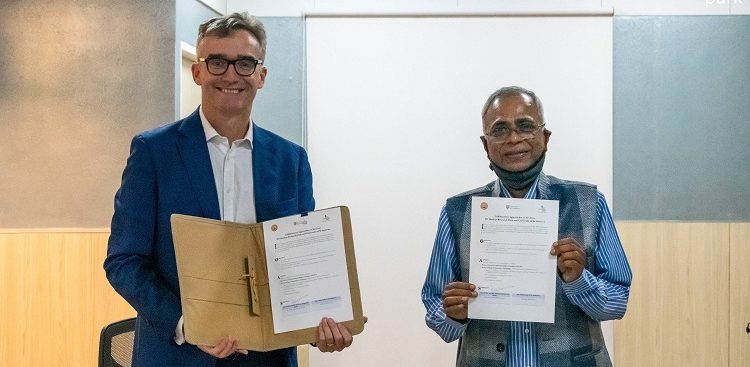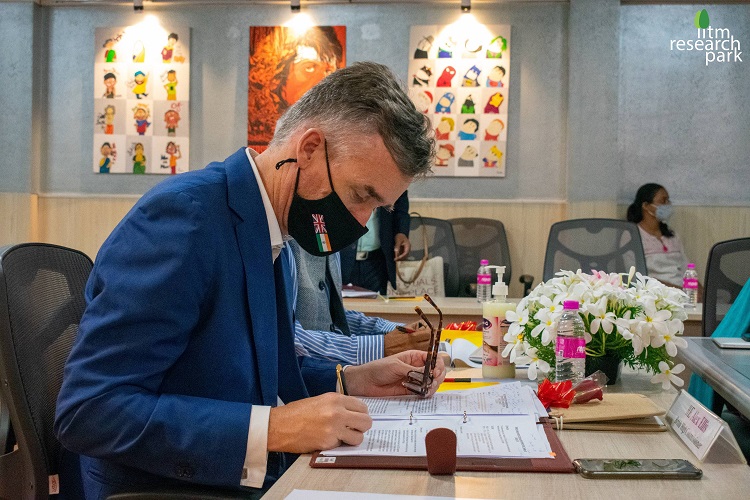Renewable energy in India
The University has signed a Memorandum of Understanding (MOU) with the Indian Institute of Technology Madras (IITM) to help India achieve 100 per cent of the country’s energy requirements through renewable energy (RE).

The project, funded by the UK government, is aimed at sharing knowledge and understanding of low-carbon energy systems and showcasing examples of low-carbon energy in practice.
The partnership, which was signed in Madras with the British High Commissioner to India Alex Ellis, has already resulted in two successful joint seminars on the theme of ‘Towards 100 per cent Renewable Energy – Routes to Net Zero’ held in June, and the sessions led to discussions on different approaches and strategies to deliver low-carbon solutions. The joint collaboration will be further supported through leveraging the expertise of IIT Madras researchers.
Professor John Irvine from the School of Chemistry said: “Collaboration across borders is essential to tackle the challenges of climate change. Our work with IITM will help us to develop low-carbon solutions for energy storage, and support both our countries in meeting their ambitious targets to reduce carbon emissions.”
British High Commissioner to India, Alex Ellis, said: “Technology, research and innovation are at the heart of the UK-India relationship. I saw the partnership in action when I met researchers and entrepreneurs at IIT Madras Research Park who are already at the cutting edge of India’s clean growth transition.
“The research partnership has great potential to develop world class energy systems and products as we build back better from the pandemic.”

Ashok Jhunjhunwala, Institute Professor, IIT Madras, and President of IITM Research Park (IITMRP) added: “Greenhouse emissions are a serious problem for the whole world: India has to do its bit. Commercial complexes like IITM Research Park, industries and high-income group urban housing need to take a lead and commit to use only green electricity and green hydrogen over the next decade. Technologies are available and innovative work cannot just make it more than economically viable.
“IITMRP is working to move close to 100 per cent RE by wheeling in solar and wind-based electricity and creating chilled water and battery storage for energy. At the same time, we work with other IITM faculty and researchers from other places on all other technologies which would make India Green.”
Category Sustainability